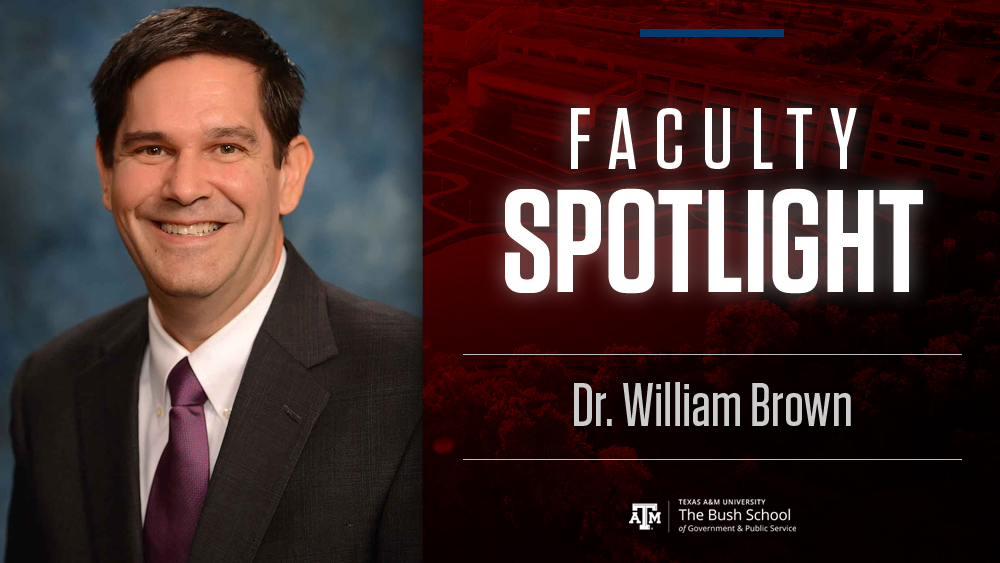
Dr. William Brown followed a non-traditional path to the Bush School, studying education, organizational psychology and social work rather than political science or economics. After earning a B.S. in education from Northeastern University, his work with emotionally disturbed children was rewarding, but very stressful, so he moved to the food services industry where he quickly saw the impact that technology was having on that and other industries. Brown decided to study organizational structure and technology, so he chose a graduate degree program in organizational psychology at Claremont Graduate University. During his graduate studies, he did a lot of volunteer work, including community outreach, and realized that he still wanted to work with children. Ultimately, he determined that he could best help needy children by improving those nonprofit organizations which assist and support them; his academic work has blended those two interests. Prior to joining Texas A&M University, he was an Assistant Professor at Arizona State University where he worked as the program coordinator of their certificate in nonprofit management and leadership and was an affiliated faculty member with the Center for Nonprofit Leadership & Management.
As director of the Certificate in Nonprofit Management (NPM) at the Bush School, Brown has seen first hand how the nonprofit field has grown and become more professional in the last fifteen years. Nonprofits now demand high quality, competent people to run their organizations, one reason the nonprofit management program has expanded so quickly, he says. The NPM program now has plans to expand to the Houston area to meet the need for highly-trained individuals in that city. The Houston area expansion complements the certificate options in College Station and online.
The opportunity to develop the nonprofit management program was one of the things which drew Dr. Brown to the Bush School. His wide and varied career experience helped him realize that “…it is the ethic of public service and social responsibility” of the Bush School that appeals to him. He sees the Bush School as the appropriate place to be asking tough questions about how to make nonprofit organizations more effective and to prepare leaders who are interested in working in the nonprofit world. Dr. Brown also noted that he was attracted by the resources available to grow and develop new ideas in the nonprofit field, as well as by the commitment to research and the support for faculty which he feels is unique to the Bush School.
Beyond the classroom, Dr. Brown has considerable consulting experience. He has worked for Filene Research Institute to better understand credit union boards and as a result of that relationship organized a project for Bush School capstone students. He has also given numerous workshop presentations focusing on nonprofit board positions, term limits, and boards’ roles in mergers and acquisitions. For the past three years he has evaluated the monitoring program for Big Brothers Big Sisters in Phoenix, Arizona. He was recently named board member to the Association for Research on Nonprofit Organizations and Voluntary Action (ARNOVA) and the United Way of the Brazos Valley.
Several of Dr. Brown’s current research projects focus on nonprofit board operations. One new project is looking at the role of a board chair, and his/her influence on the other board members. Another project, based in Houston, looks at demographic factors which influence board members’ ability to work effectively on boards. One notable award won by Dr. Brown is the “Best Article” award by the Journal for Nonprofit Management and Leadership for his article on the contributions boards make to organizations. This award is particularly noteworthy because it was given by the Journal’s editor.
